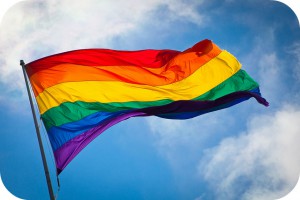 Last year millions of Americans celebrated the Supreme Court’s decision to legalize gay marriage. But they certainly weren’t the only ones applauding the landmark ruling: dozens of brands showed their support on social media. Such an outpouring of advocacy from established companies would have been unthinkable just a decade ago. Times have changed, though, and businesses today have started to realize how important LGBT issues are to many consumers, especially young people. As a result, companies that once would have remained neutral are now showing their support for social causes.
Last year millions of Americans celebrated the Supreme Court’s decision to legalize gay marriage. But they certainly weren’t the only ones applauding the landmark ruling: dozens of brands showed their support on social media. Such an outpouring of advocacy from established companies would have been unthinkable just a decade ago. Times have changed, though, and businesses today have started to realize how important LGBT issues are to many consumers, especially young people. As a result, companies that once would have remained neutral are now showing their support for social causes.
Of course, brands need to do more than change their Twitter avatars if they want to appear sympathetic to the LGBT community. This is especially true in regions that are not as supportive of gay rights. For instance, in 2012 Hormel Foods faced a backlash from some staffers when executives added gay pride holidays to the corporate calendar. The incident taught managers at the Minnesota-based food firm that they had a long way to go before their workplace was truly inclusive. In response Hormel established a companywide LGBT advocacy group called HProud & Allies in order to learn more about the issues facing some workers. The company also added a few new benefits programs, such as health insurance coverage for domestic partners as well as a special plan for transgendered people.
All these efforts earned Hormel a perfect score on the Human Rights Campaign’s Corporate Equality Index. Along with providing a branding boost, this distinction also makes the company more appealing to talented young jobseekers that demand a diverse workplace. “We have a sophisticated, new kind of employee who’s not just looking at what their salary is going to be but at the environment they’re going to be working in every day,” said Sarah Kate Ellis, CEO of the LGBT advocacy organization GLAAD. “They want that environment to be inclusive, to be welcoming.” Despite these changing attitudes, however, more than 28 states still have antigay discrimination laws in place, representing more than 50 percent of the nation’s workforce. As long as these laws remain, LGBT workers will have to continue their fight for complete acceptance.
Questions:
- What sort of advantages does diversity bring to the workplace?
- Should companies legally be allowed to discriminate against LGBT employees or customers?
Source: Jeff Green, “Companies in Middle America Want to Recruit More LGBT Workers,”Bloomberg BusinessWeek, March 24, 2016. Photo by Benson Kua.
